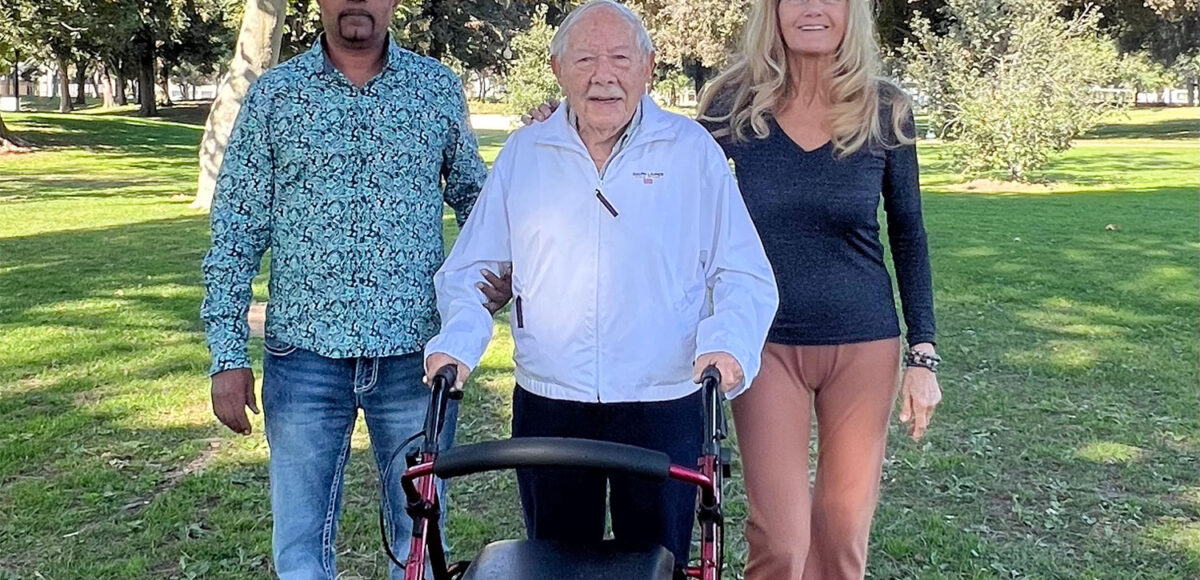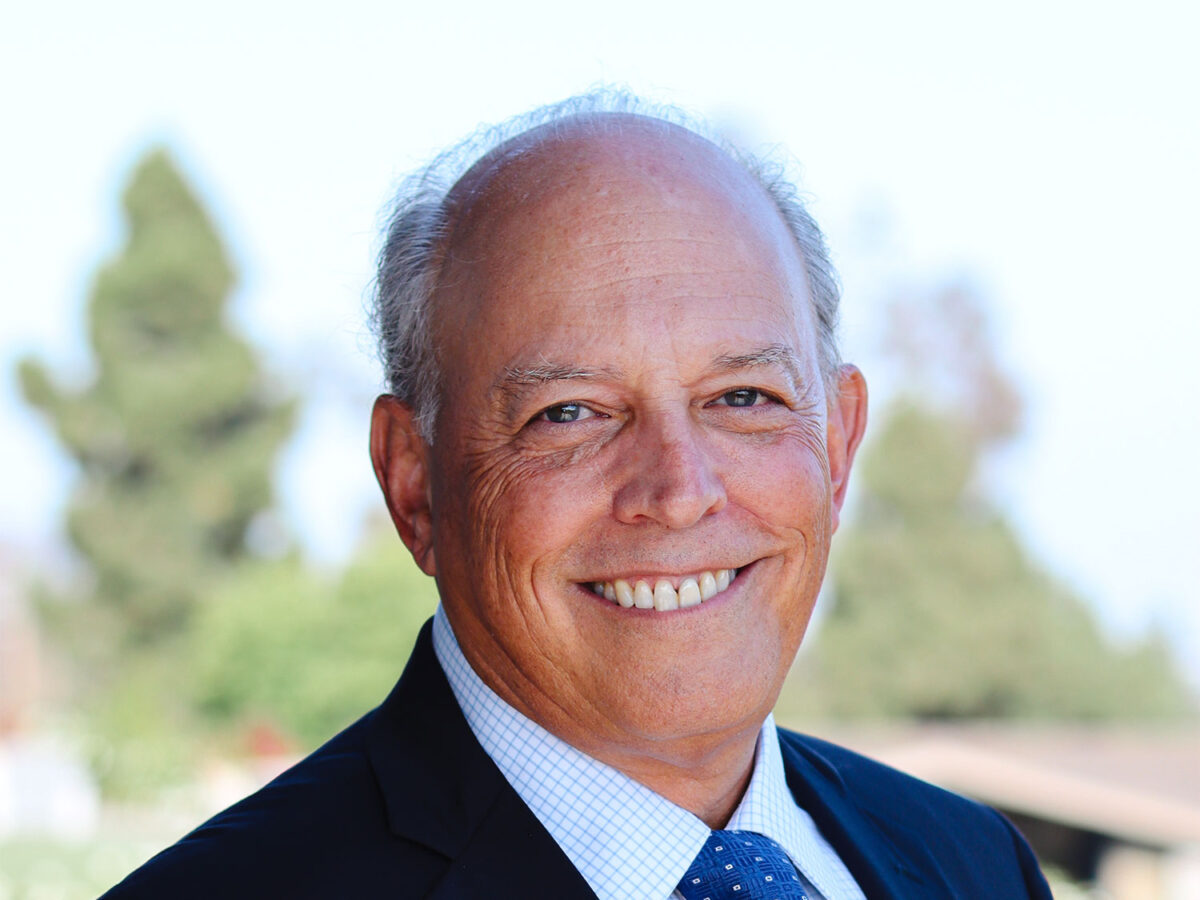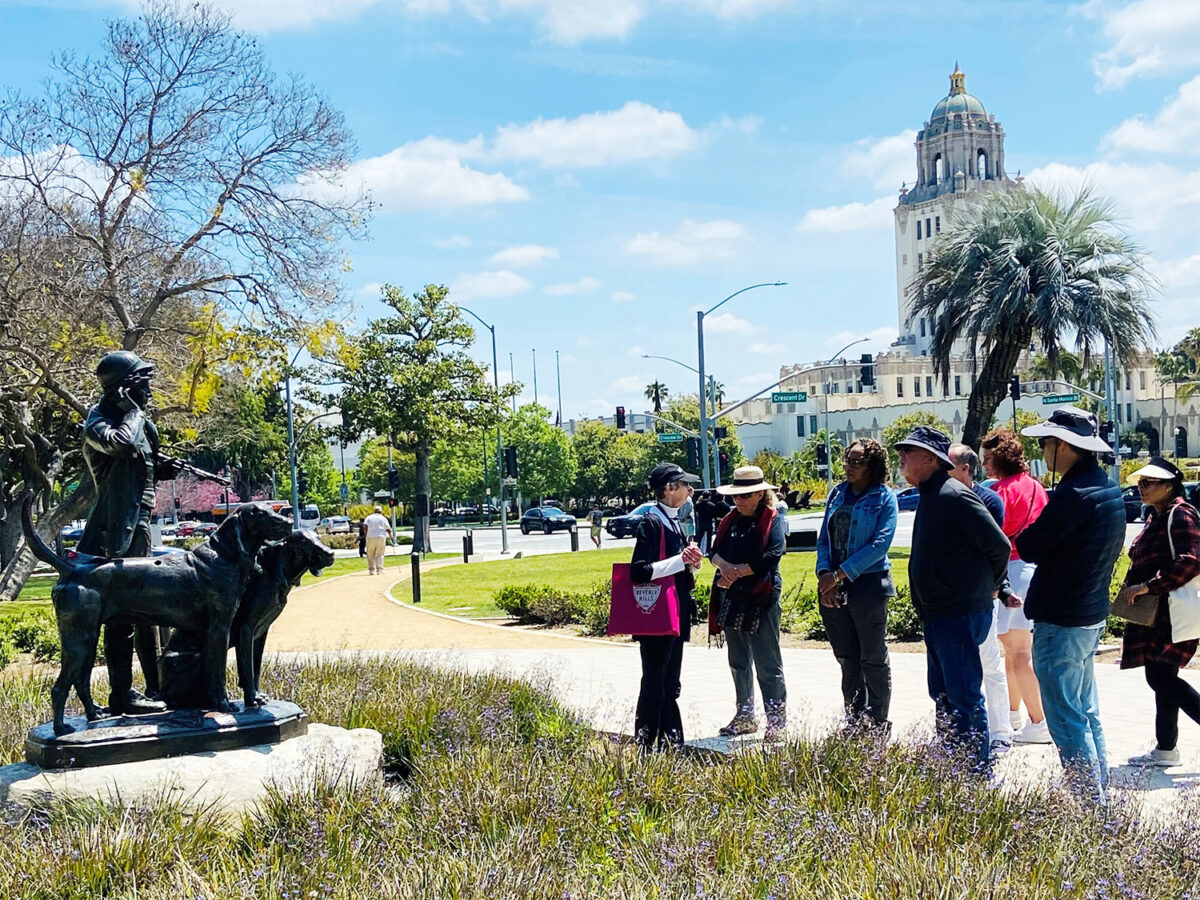When Benno Katz laughs, it’s warm and heartening; it belies a century of singular and tumultuous experiences.
This week, as Katz prepares to celebrate his 100th birthday on Nov. 29, the local Beverly Hills resident spoke to the Courier over the phone to reflect on his life, from his harsh and harrowing childhood experience living through the Holocaust to starting a new life in Beverly Hills.
Despite being 99 years old, Katz is still apt at remembering specific dates, from when he fought in Israel to when he moved to Southern California.
He began our conversation by recounting that fateful day when he knew his life would never be the same.
“One day I was in school, and the next day, I was out in nowhere,” Katz recalled.
Katz was born to two Jewish Polish immigrants in Dortmund, Germany and was the oldest of three children. Up until age 10, he lived a fairly normal life—until one night, he heard a knock on the door. It was the Gestapo informing Katz’s family that they were being deported, alongside other foreign Jewish families in Dortmund. They were given just one hour to pack before being sent away on a train to Poland. For a year, Katz and his family remained on the Polish border.
“For a year, they wouldn’t let us into the country. Just the border. No school, no nothing,” Katz recalled.
After living on the Polish border, Katz’s parents made the difficult decision to separate their family by registering him and his brother for the Kindertransport. Too young to be sent away, their 3-year-old sister remained with Katz’s mother and father. His parents were later sent to the Warsaw Ghetto and died in 1941.
The Warsaw Ghetto was the largest of the Nazi ghettos. Adolf Hitler’s General Government established the ghetto in occupied Poland nearly a year after World War II broke out. Katz’s parents were among the approximately 400,000 who died in the Warsaw Ghetto.
Katz and his brother were two of thousands of Jewish children rescued via the Kindertransport —a series of efforts led by the British to save children from Nazi-controlled territories during the nine-month outbreak leading up to World War II. Katz was sent to the south of England three months after his brother was sent to the north. In England, Katz lived in a children’s home, which he calls an orphanage because “no one ever saw their parents again.”
When he was old enough, Katz enlisted in the British army and fought in Italy. Three years later, he was finally reunited with his brother.
Soon after leaving the British army, Katz left the country because he was “worried about the state of the Jewish people” after his family died in the Holocaust. Katz decided to volunteer to serve in the Haganah, the Zionist military entity that integrated into the Israeli Defense Forces and led to the establishment of the State of Israel in 1948.
“It was a very, very bad war in Israel,” Katz said. “We were four people, and three were dead within a month and a half.” Katz fought in Israel for nearly a year.
But it wasn’t all dark —Katz met his wife, Shoshana, while serving in the Israeli army. The two were married for 65 years. They had a child, Steven, who still looks after Katz.
In 1958, they obtained immigration affidavits from individuals in Boston, Massachusetts, decided to pack their bags and move to the United States.
“I did not know a soul when I came here. It was extremely courageous. I don’t know how I did it,” Katz said in disbelief.
When Katz and his family immigrated, his son was 6 years old, and his wife had just lost a baby. He spoke about their move with incredulousness.
But Katz didn’t prefer to talk about that part of his life as much.
“The experience is best forgotten … I’m sorry I don’t have anything light to tell you,” Katz said with bits of his dry humor.
Katz stated that his family prefers him not to share too many details about his earlier life, but that he would do it for the Courier, which he’s been reading for 50 years.
Eventually, sunshine drew Katz, like many others, to Southern California. Before that, Katz grew up in harsh climates —first Germany, then Britain—before relocating to Boston in 1958 and finally Los Angeles in the 1960s.
Since then, Katz said he has been living a relatively straightforward life. He lived in West Los Angeles and then Beverly Hills, where he’s been residing in his current home on Palm Drive for over 50 years. He called himself an animal lover, stating he knows “all the dogs on his street.”
He worked until he was 92 importing ball bearings for his company, Allied Bearing Sales.
“It wasn’t great, but it paid the bills,” Katz humbly stated. Katz never attended university and was only ever trained to fight in war.
Though he missed the opportunity to attend university, Katz kept his mind active by reading a book a day and listening to lectures.
Now, Katz lives a relatively nondescript, laid-back life, even opting to speak later in the day to give himself an extra hour of sleep. He does what he can to stay healthy. Despite not walking, seeing or hearing well, as Katz described, his days consist of daily exercise and neighborhood walks, including taking fitness classes from the Beverly Hills Roxbury Recreation Center. He is regularly visited by his son, Steven, his daughter-in-law and grandson, who live nearby.
“Basically, I could complain, but I should not complain,” Katz joked.
He also has a full-time caregiver, who makes sure Katz doesn’t miss a doctor’s appointment.
“My son calls me twice a day to make sure I’m still breathing,” Katz stated affectionately.
He doesn’t have that much family nearby— just his son and his wife and child as well as his nephew and his three daughters.
Additionally, Katz’s synagogue continues to keep in touch with him by calling him, even after he stopped attending regularly. He says it’s because he tries to avoid any place with stairs.
For his 100th birthday, Katz received a flag and a letter from his senator. Katz’s plans for the centenary of his birth consist of a doctor’s appointment, a small gathering hosted by his son, and a dinner with his nephew’s daughters.
Now that he’s older, Katz finds himself thinking about the past more often than he used to, stating that there’s no use in thinking about the future.
“I’m not looking for it [the past], but it comes to me,” Katz said. “I’m not damaged in any way so it’s OK. I forgive anyone who’s ever slighted me.”
Katz often thinks back on his earlier life: his loving family, including his parents and two younger siblings, and the painful memories of being beaten up on his way home from school.
Despite the changes and challenges, Katz kept his sense of humor, stating that he still makes lots of bad jokes.
“I don’t recommend anyone to be born in 1924,” Katz jokingly stated.







